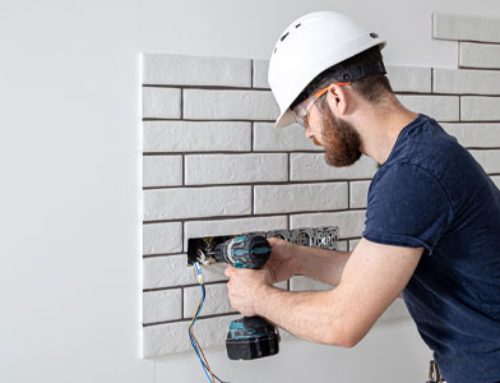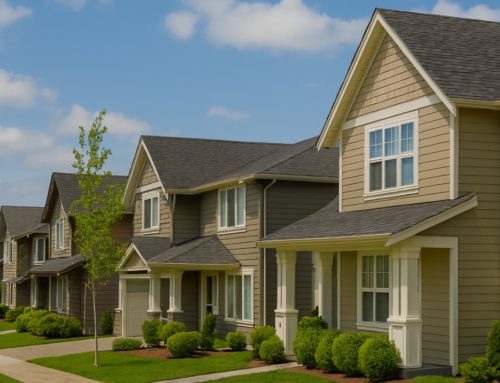It is never pleasing to see how your neighbors have disputes with each other. This not only disturbs the comfort and peace of the community but also creates an overall tense atmosphere. The case is especially true for residents within the area of the homeowner’s association (HOA).
The organization maintains property rules for residents and homeowners, and by becoming an HOA member, homeowners follow those rules and pay HOA fees. The money that residents pay monthly helps them maintain their properties, shared spaces, and amenities. HOA maintenance management is responsible for maintaining the property values of neighborhoods. Residents cannot regulate their homes the way they want because it will lower the overall property values. Thus, the organization creates a community where each neighbor shares common areas, interests, and preferences. Through effective HOA management, residents have a clean and well-ordered atmosphere.
For overall peace, board members of HOAs are essential identities because they are responsible for managing the budget, ensuring that the community follows governing documents, and solving conflicts.
Homeowners’ or condo association harassment impacts the overall peace of the community of HOA. Whenever disputes or harassment fall within the United States Department of Housing and Urban Development (HUD) and The Fair Housing Act (FHA) regulations, the association is liable and should be involved in resolving the situation. Otherwise, the homeowners have all rights to sue the neighbor for harassment, leading to lawsuits.
Let’s understand what the cases are for neighbor-to-neighbor harassment and when HOA board members are liable to interfere.
When are HOA Board Members Liable?
HUD established that the homeowner’s association is liable for discriminatory behavior by its employees, board, managers, and even residents.
Here are two types of harassment that HUD prohibits:
-
Quid Pro Quo
When a homeowner is required to submit to an unwelcome request by engaging in sexual misconduct for receiving or maintaining housing.
-
Hostile Environment
This refers to severe or pervasive unwelcome conduct because of which a homeowner cannot use and enjoy housing services and facilities.
-
HOA Liability for Neighbor Harassment by Residents
FHA showcases that HOA is liable for neighbor-to-neighbor harassment. If you’re experiencing any discriminatory acts, you can submit a complaint to the HOA board about your neighbor.
The homeowner’s association is liable for harassment by a resident, which includes these elements:
- The harassment is based on color, race, religion, sex, disability, familial status, and national origin.
- The harassment became pervasive, and a resident could not enjoy housing.
- The HOA was aware or could be aware of neighbor harassment and did not stop it.
- Failing to take immediate action to correct and prevent the misconduct.
HOA administrative services can take some actions to end the unwelcome act and correct the behavior.
What to Do When a Neighbor is Harassing You?
Now, let’s talk about neighbor disputes.
Many times members of HOA encounter bad neighbors who do not allow residents to enjoy using housing services and facilities. For example, you may ask how to deal with noisy upstairs neighbors of a condo, or what to do when my neighbor’s dog barks, and more. In these cases, you start to think about how to get rid of bad neighbors legally and how to sue your neighbor.
Bad neighbors include those who are noisy, messy and showcase criminal behavior. Homeowners have rights against such neighbors, and here are a few steps to take during neighbor disputes (noise, parking issues, smoking issues, and more) and condo association harassment (e.g. my neighbor is stalking me, requesting unwelcome conduct):
- Try to communicate with your neighbor before referring to the board.
- Involve a mediator or board member into a dispute.
- When the communication does not help, complain to the HOA board or third-party managers about your neighbor.
- Document the specifics of the harassing behavior because courts require facts and evidence when you sue your neighbor for harassment. You can write down some notes of your neighbor’s behavior and the time when they act in a particular manner. It is better to take pics and shoot videos if possible.
- Whenever you encounter any threats or dangerous behavior, make sure to call the police.
- Sue your neighbor for harassment and require a restraining order on your neighbor. Do not forget to document facts and evidence for claims.
What Can a Board Member Do During Neighbor-to-Neighbor Harassment?
An HOA’s good members’ qualities are essential to solving problems regarding neighbor disputes and harassment. Board members’ good qualities help the HOA be aware of the disagreements, address neighbors’ complaints, and resolve them in a timely manner. Let’s see as a board member, what are some steps that you can take when faced with neighbor disputes and harassment:
- Be aware of HOA’s governing documents, CC&Rs, and bylaws so that when neighbors have disputes and harassment between each other that apply to those documents, you can intervene.
- When you encounter disputes that are not involved in protected class categories and can be solved without complex legal processes, you can become a mediator between the two parties and address neighbor complaints.
- With the help of the community or property manager, the board can create an educational presentation for homeowners regarding the FHA and discrimination acts. They can also address issues like what to do when a neighbor is stalking me, how to deal with noisy upstairs neighbors of a condo, how to sue my neighbor, give some examples of the HOA code of conduct, and more.
- Board members should teach residents to communicate with each other. If they have a dispute that they can solve together, they should meet up and come to an agreement.
- You can refer to HOA property managers who can also handle neighbor disputes and they are well-versed. With that in mind, you can look for HOA management services in LA to help resolve any issues.
How Can HOAs Get Rid of Bad Neighbors Legally?
Now let’s see what HOA members can do for bad homeowners within the community and how they solve the issues of disputes and harassment.
- Follow up on neighbor complaints as soon as possible.
- Become a mediator between angry neighbors.
- Send a violation notice (including any fines or ways to correct behavior) to a bad homeowner whenever the offending resident breaks HOA regulations.
- Call the police whenever they find out that the neighbor is a criminal who may threaten the overall community and neighbors’ lives.
- File a lawsuit whenever the case has become complicated to handle. And use enforcement provisions such as restraining orders for neighbor harassment to stop the discriminatory act.
If you want any help regarding neighbor-to-neighbor harassment or disputes, you can always reach out to Wall Street HOA property management for all your HOA needs in Los Angeles, CA.





